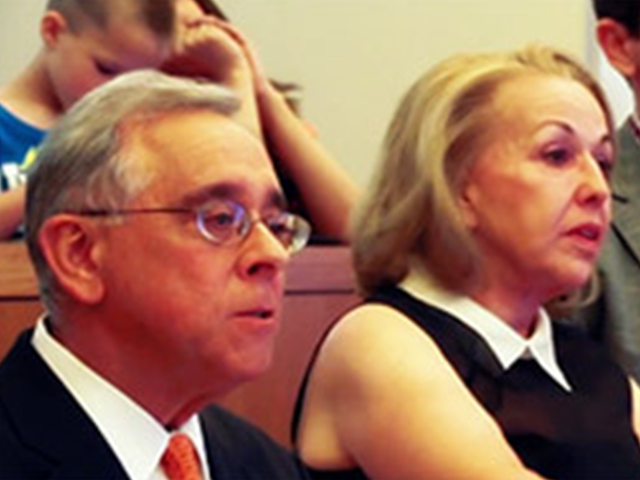
The Bodner Lab is outfitted with two administrative computers, four testing computers, and four analysis computers. The testing workstations in the lab are configured to allow for high-resolution digital recording of participants for later analysis. The recordings feature studio quality audio of the test subject, a close-up video image of the test subject’s face, and a small video inset window showing the testing workstation’s display. Additionally, the testing workstations utilize serial response boxes which allow for timing subject response using tactile button presses and spoken feedback. The testing workstations also feature high-fidelity direct-to-disk recording and analysis tools for analyzing specific aspects of the human speech process. The analysis workstations in the lab are configured to allow easy viewing, transcription, and coding of digital recordings. The workstations feature high-fidelity monitor speakers, headphones, and multiple monitors to allow for efficient workflows. In order to guarantee the highest fidelity recordings during lab tests, the lab has been fitted with soundproof insulation and the lab utilizes high-quality condenser microphones, studio-grade microphone pre-amps, and studio-grade wiring and accessory electronics. Software and data co-processors specific to the functions of the lab include SuperLab, E-Prime, the research version of SALT V9, and CSL. Finally, the Bodner Lab has direct access to 12 therapy rooms that come equipped with two-way mirrors and audio and video recording devices.
Research
The Dr. Jennifer and Emanuel Bodner Developmental Stuttering Laboratory helps support and further our mission to be a field-changing leader in investigating the linguistic, motor, and social emotional factors that contribute to the onset, development, and maintenance of stuttering. Through the Bodner Developmental Stuttering Lab, the Arthur M. Blank Center offers continuing education workshops for practicing speech-language pathologists, provides biweekly counseling groups to parents of children who stutter, organizes biannual public forums for individuals who stutter and their families, and collaborates with the National Stuttering Association on its monthly local chapter meetings. “I was attracted to this line of research because stuttering affects every area of someone’s life. It speaks to both the head and the heart,” Dr. Courtney Byrd says. “I have yet to meet a person who stutters who hasn’t taught me something significant. There’s so much left to discover about the nature of the disorder. We’ve just begun to scratch the surface.”
Support
In 2012, the lab received an endowment and was officially renamed the “Dr. Jennifer and Emanuel Bodner Developmental Stuttering Laboratory.” The Dr. Jennifer and Emanuel Bodner Developmental Stuttering Laboratory helps support and further our mission to be a field-changing leader in investigating the linguistic, motor, and social emotional factors that contribute to the onset, development, and maintenance of stuttering. Through the Bodner Developmental Stuttering Lab, the Arthur M. Blank Center offers continuing education workshops for practicing speech-language pathologists, provides biweekly counseling groups to parents of children who stutter, organizes biannual public forums for individuals who stutter and their families, and collaborates with the National Stuttering Association on its monthly local chapter meetings. “I was attracted to this line of research because stuttering affects every area of someone’s life. It speaks to both the head and the heart,” Dr. Courtney Byrd says. “I have yet to meet a person who stutters who hasn’t taught me something significant. There’s so much left to discover about the nature of the disorder. We’ve just begun to scratch the surface.”
Emanuel “Manny” Bodner has witnessed firsthand the benefits of therapy and family support in treating a stutter. Growing up with a stutter, Mr. Bodner recounts a particularly painful experience as a child.
As he was competing in a spelling bee, the judges asked him to recuse himself from the competition, even though he had become a finalist and had provided all the correct answers. He attributes this to his stutter.
Since then, Mr. Bodner has been able to transcend his stuttering through speech-language therapy and family support. In 1969, he graduated from The University of Texas at Austin and succeeded in business, leading the Bodner Metal & Iron Corporation for several decades.
In early 2012, Mr. Bodner donated to support the work of Dr. Courtney Byrd and the research she was completing through her Developmental Stuttering Lab. The lab was re-named in honor of him and his wife, Dr. Jennifer Bodner. “When we saw firsthand the power of her success and strength of passion, we knew we wanted to encourage her continued work,” Mr. Bodner says. “Stuttering research and therapy are essential to empowering people’s desire to communicate.”
